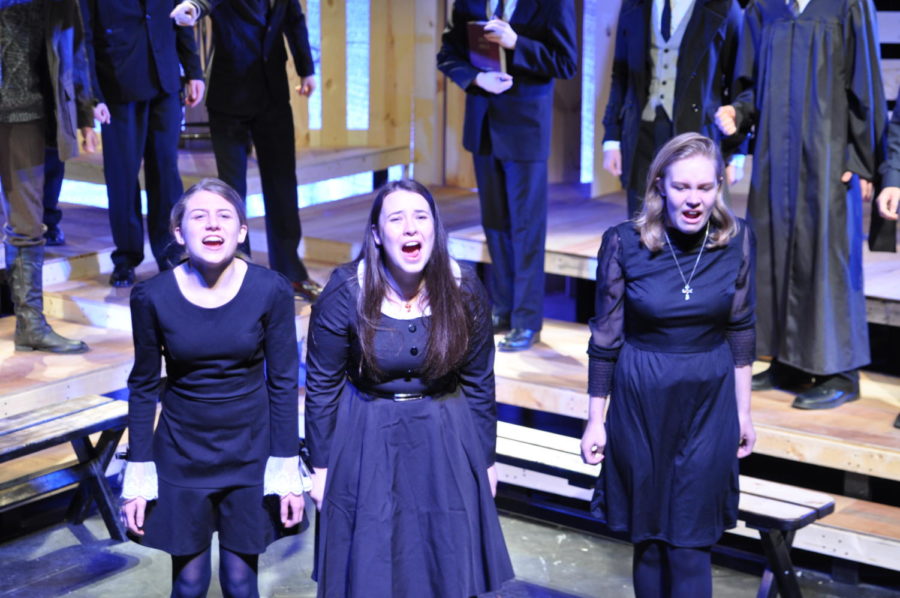Witch Hunt
South drama department puts on The Crucible, Nov. 8-10.
This week South’s drama department, led by Jennifer Forrest-James, will put on The Crucible, this year’s fall play. The opening performance is tomorrow at 3 p.m. There are evening shows Nov.9-10 at 7 p.m. Tickets are $5 for the matinee and $8 for the evening performances.
Cameron Cai, Andrea Counts, and Frank Lindwedel, a few of the many actors featured in the play, had lots of insight info about the play that they were happy to share.
Cai, who plays Deputy Governor Danforth, one of the main characters, gave a quick summary of the play.
“The crucible is a story that takes place during the time of the Salem witch trials. John Proctor has an affair with a maid, Abigail williams. When he returns back to his wife, Elizabeth, with no further interest in Abigail, she becomes angry. In an attempt to win John back, her and a few other girls begin accusing women, especially Elizabeth, of being witches. Then I come in and try to figure out if the town members are witches or not. I’m kind of the puppet master in the play,” he said.
Lindwedel, who plays the main protagonist, John Proctor, shared his opinions about the play.
“I didn’t really know a lot about the play before trying out. I actually tried out with a southern accent; The Crucible takes place in Salem Massachusetts. Once I read the play and understood what it was really about I saw that it’s a powerful story. It causes you to feel so many emotions within the time span of a couple of hours. It addresses a lot of touchy subjects and a lot of religion, which makes it a unique story that people need to know,” he said.
Both Cai and Lindwedel agree that the play includes a multitude of important themes.
“A theme shown throughout the entirety of The Crucible is the insincerity of justice. Justice only benefits those in power. Abigail and the other girls accusing townspeople of witchcraft constantly pretend to be possessed and such to ‘prove’ that they had been cursed by a witch. The accused couldn’t prove their innocence, so Abigail was successful and the accused were persecuted,” Cai said.
“The whole set is created for the audience to judge it. The whole cast is divided by egotistical people and people trying to protect their wives. The rebels [the ones accused of being witches] keep trying to clear their name so that witchery won’t be connected to their legacy, and the accusers keep trying to redirect any and all blame back to the rebels. The audience is supposed to feel included in the trial, to really feel the judgement and unfairness that the trials bring to light,” Lindwedel said.
Counts, who plays one of the female leads, Elizabeth Proctor, continued to talk about the value of seeing the play.
“It really is a timeless play. It addresses problems that still occur today in a unique way. The writing style is really intriguing, different than more modern plays, but tells the story in a really cool way. Us, as a cast work hard to interpret in an interesting way that makes sense to the audience, while bringing new meaning to the script. It’s totally confusing, but if you can interpret the way that we do, it tells a great story that everyone should know,” said Counts.











